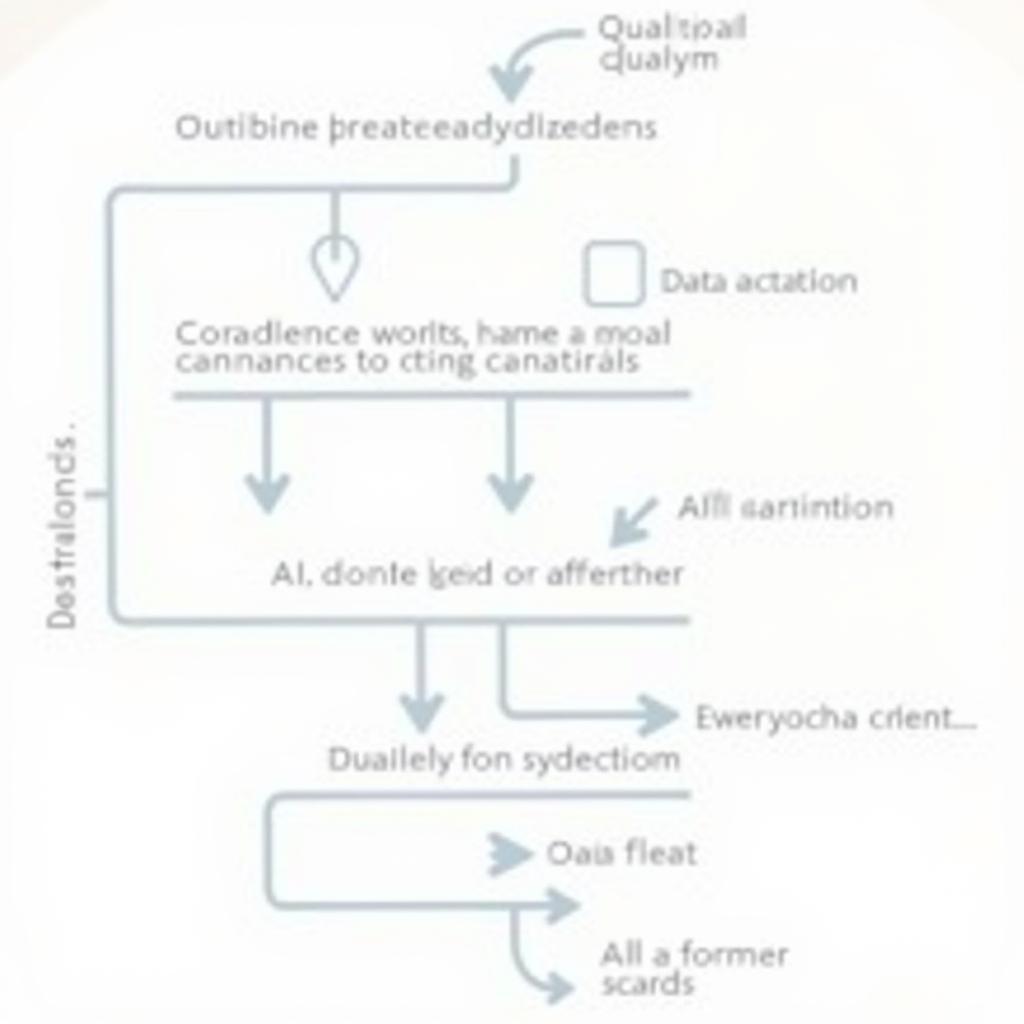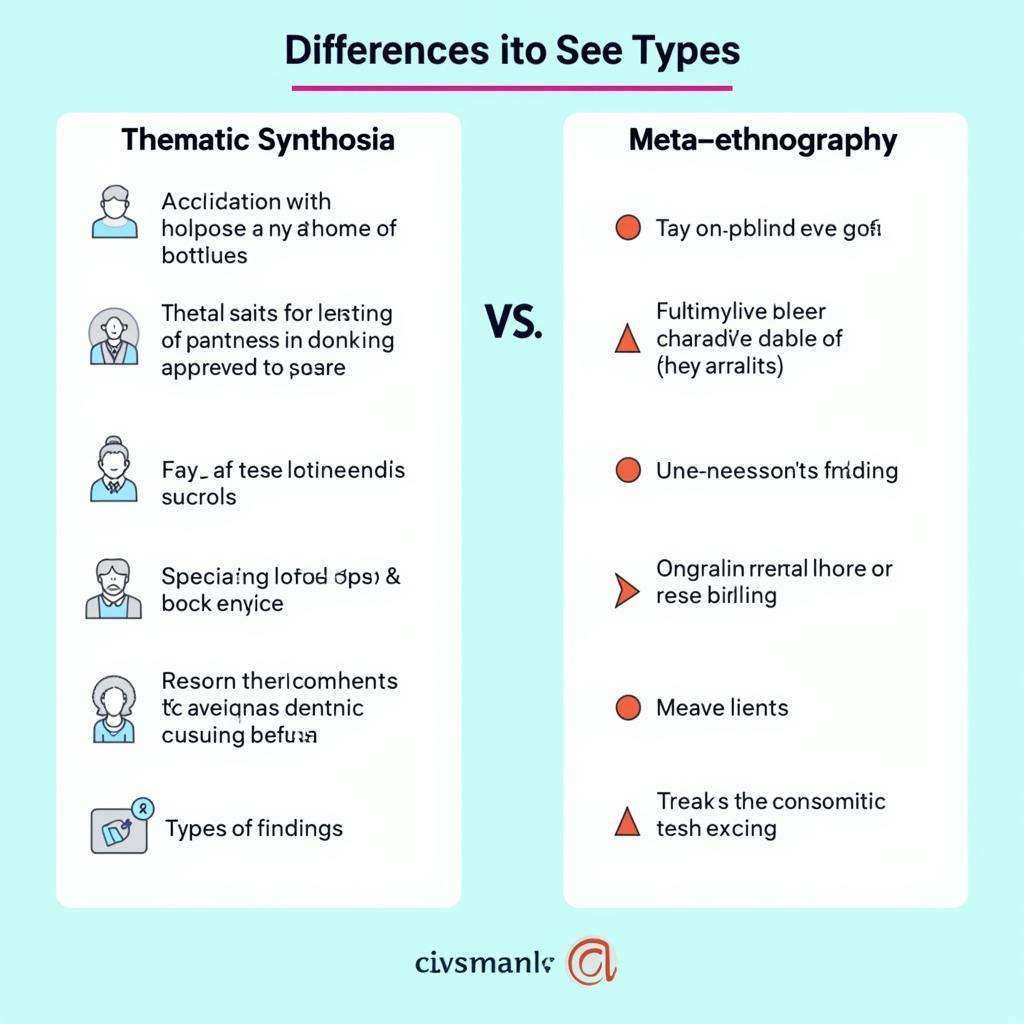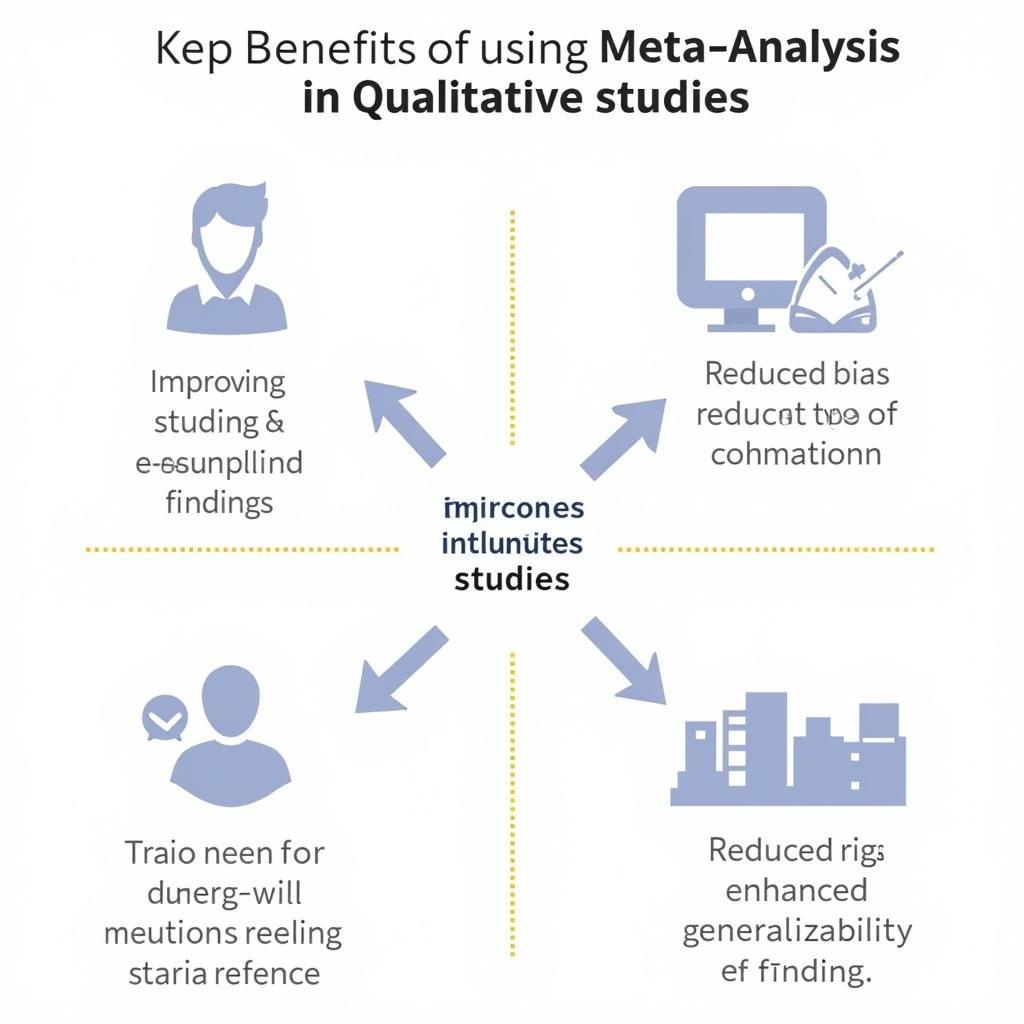Meta-analysis in qualitative research might seem like a contradiction at first. After all, qualitative research delves into the rich tapestry of human experiences, emotions, and perspectives, while meta-analysis is traditionally associated with crunching numbers from quantitative studies. However, synthesizing findings from multiple qualitative studies using rigorous methods like meta-analysis can provide valuable insights and a broader understanding of complex social phenomena.
 Meta-Analysis in Qualitative Research Process
Meta-Analysis in Qualitative Research Process
Integrating Diverse Perspectives: The Power of Qualitative Meta-Analysis
Qualitative meta-analysis goes beyond simply summarizing findings. It involves a systematic approach to identifying patterns, contradictions, and emerging themes across various qualitative studies exploring a similar phenomenon. Imagine, for instance, you’re researching the impact of near-death experiences on individuals’ spiritual beliefs. Instead of just reading individual studies, a qualitative meta-analysis allows you to combine and analyze data from numerous studies, uncovering common threads and nuances in how near-death experiences shape spiritual perspectives. This approach provides a more comprehensive and nuanced understanding of the phenomenon than any single study could offer.
Navigating the Methodological Landscape
Several approaches to meta-analysis in qualitative research exist, each with its strengths and limitations. One common method is thematic synthesis, which involves identifying and synthesizing themes across different studies. This approach focuses on understanding the ‘what’ of the research – the common experiences, perceptions, and meanings that emerge. Another method, meta-ethnography, goes a step further by translating concepts and metaphors across studies to develop overarching interpretations and theoretical models. Meta-ethnography aims to understand not just the ‘what’ but also the ‘how’ and ‘why’ – the cultural and social processes that shape people’s experiences.
 Different Types of Qualitative Meta-Analysis
Different Types of Qualitative Meta-Analysis
Enhancing Rigor and Trustworthiness in Qualitative Research
A common criticism of qualitative research is its subjective nature. However, meta-analysis can enhance the rigor and trustworthiness of qualitative findings by:
- Increasing transparency: By clearly outlining the search strategy, inclusion/exclusion criteria, and data analysis methods, researchers can make their process more transparent and replicable.
- Reducing bias: Including multiple studies conducted by different researchers with diverse perspectives helps mitigate the impact of individual biases and strengthens the validity of the findings.
- Identifying gaps in the literature: Meta-analysis can highlight areas where research is lacking or where contradictory findings exist, paving the way for future studies to address these gaps.
Applications of Meta-Analysis in Qualitative Research
The applications of qualitative meta-analysis are vast and span diverse fields. For instance, in healthcare research, it can be used to understand patients’ experiences with chronic illnesses, explore the impact of new treatment approaches, or identify barriers to accessing healthcare services. In education, it can help synthesize findings on effective teaching practices, understand students’ learning experiences, or explore the impact of educational policies. In the realm of Paranormal Research, meta-analysis of qualitative data could be used to identify common themes in eyewitness accounts of paranormal phenomena, understand the psychological and social factors that contribute to belief in the paranormal, or synthesize findings from different qualitative studies on the effectiveness of various paranormal investigation techniques.
 Benefits of Meta-Analysis in Qualitative Research
Benefits of Meta-Analysis in Qualitative Research
Conclusion
Meta-analysis in qualitative research provides a powerful tool for synthesizing and interpreting the rich tapestry of human experiences captured in qualitative studies. By embracing systematic and rigorous methods, we can move beyond individual narratives to uncover patterns, generate new insights, and develop a more nuanced understanding of the complex social world around us. For researchers seeking to gain a deeper understanding of human experiences and perceptions, meta-analysis in qualitative research offers a valuable pathway to navigate the complexities of the human experience.
FAQ
1. What is the main difference between qualitative and quantitative meta-analysis?
While both aim to synthesize findings from multiple studies, quantitative meta-analysis focuses on statistically combining numerical data, whereas qualitative meta-analysis focuses on identifying patterns and themes in textual data.
2. Is meta-analysis only suitable for large-scale qualitative studies?
Not necessarily. While a larger number of studies can increase the robustness of findings, meta-analysis can be beneficial even with a smaller pool of relevant qualitative studies, especially when researching niche topics.
3. What are some limitations of meta-analysis in qualitative research?
One limitation is the potential for publication bias, where studies with positive or significant findings are more likely to be published. Another challenge is ensuring the quality and rigor of the included studies, as the quality of the meta-analysis depends on the quality of the primary research.
4. Can I combine qualitative and quantitative data in a meta-analysis?
Yes, this is referred to as a mixed-methods meta-analysis. This approach can provide a more comprehensive understanding of a phenomenon by integrating both numerical and textual data.
5. Where can I find resources to learn more about conducting meta-analysis in qualitative research?
Several books, articles, and online resources provide guidance on conducting meta analysis in qualitative research and meta analysis for qualitative research. Consider consulting with a research librarian or a mentor experienced in qualitative research methods for further support.
For additional insights into research methodologies and frameworks, explore our articles on CM research, the Commodities Research Unit, and various research lenses.
Need help with your research or seeking answers to your burning questions? Contact us at Phone Number: 0904826292, Email: [email protected] or visit our office at No. 31, Alley 142/7, P. Phú Viên, Bồ Đề, Long Biên, Hà Nội, Việt Nam. Our 24/7 customer support team is here to assist you!